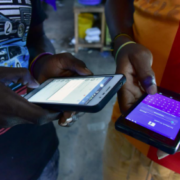Zimbabwe has officially launched an ambitious national digital upskilling initiative aimed at training 1.5 million young people in data science, artificial intelligence, mobile app development, and programming, a move that signals the country’s growing ambition to stake its place in Africa’s digital future,
The initiative, supported by the United Arab Emirates’ Government Experience Exchange Program, was pitched as a transformative leap that could unlock economic opportunity, strengthen innovation ecosystems, and offer a generation of Zimbabweans a digital edge in a fast changing world.
By Gamuchirai Mapako
Speaking at the launch event, ICT Minister, Hon Dr. Tatenda Annastacia Mavetera recognised the project as a pillar of the country’s Vision 2030 and its broader National Development Strategy.
“In today’s global economy, digital skills are the new currency,” said Dr Mavetera.
“By equipping our young people, we are enhancing employability and nurturing a culture of creativity that will drive our nation forward.”
The program’s curriculum is anchored on four core modules which include data science fundamentals, programming basics, android development using Kotlin and AI fundamentals.
Participants will access training through digital platforms, mobile units, and in-person centres, a strategy intended to bridge the urban-rural divide.
The ambition is evident and the challenge even clearer. This begs the questions, How will the government scale this program nationwide in a country where large parts of the population still struggle with basic internet access, and where educational inequalities run deep?
Delivering the keynote address, Deputy Minister of Cabinet Affairs and Government Experience Exchange Program in the United Arab Emirates, Hon Abdullah Lutah framed the partnership not just as technical cooperation but as a shared investment in human capital.
“This transformative programme represents more than just numbers, it represents possibility, potential, and promise. It is a bold declaration that Zimbabwe’s youth are ready to lead, innovate, and shape a future driven by knowledge and digital excellence,” Hon Lutah said.
While the initiative is being promoted as inclusive, questions remain about accessibility, especially for students in rural and marginalized communities where digital literacy and internet penetration are low. The success of the program will hinge not only on the curriculum, but on the ability to deliver that curriculum equitably.
Bridging skills with opportunity is essential however, without clear pathways into employment, entrepreneurship, or further innovation including start-up incubation, mentorship, and investment, even the most well-trained youth may end up with certificates but no prospects.
Addressing that pain point, the government has called on the private sector, universities, and civil society to step up, with Dr. Mavetera noting, “We are stronger together.”
“Cooperation and mutual growth is not limited to Foreign Governments and Foreign Companies,” she added.
Hon Lutah echoed this sentiment, pointing to the UAE’s own track record of cross-sector collaboration.
“These are the tools that will unlock new industries, fuel entrepreneurship, and create solutions not just for Zimbabwe, but for the whole world,” he said.
Zimbabwe’s tech ecosystem is nascent but growing. Fintech start-ups and innovation hubs are emerging, though often in urban centres. An influx of 1.5 million digitally skilled youth could give the ecosystem a much-needed jolt if those skills are matched with opportunity.
The minister highlighted a partnership with several MDAs to roll out this program. With support from the E-Government Unit in the Office of the President and Cabinet, The Ministry of Higher and Tertiary Education, Innovation, Science and Technology, as well as the Ministry of Skills Audit and Development. Representatives from POTRAZ in attendance also applauded the initiative, deeming it a great step
With over 60% of Zimbabwe’s population under 35, the program is also a demographic bet. Youth empowerment through tech is not just a development goal it’s also a political imperative.
The launch of the Digital Skills Program is undoubtedly a positive step, signalling Zimbabwe’s intention to harness the power of technology for development.












Comments